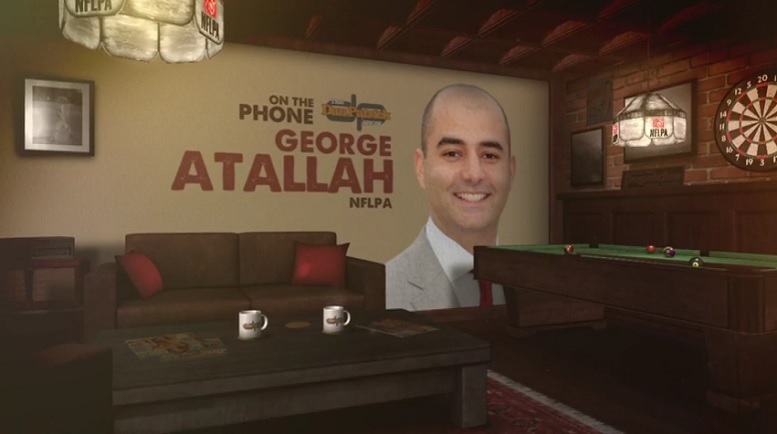Checks and balances are an important thing. This is probably something that you learned in middle school when it comes to the US government, but it is an equally applicable system in all walks of life. The checks and balances that exist between employers and employees has proven to be an important element of modern life as well.
Part of that balance is the formation of workers’ unions, and all sorts of different fields participate in the collective bargaining power of unionized workers, though they are not as strong as they once were as governments at both the national and regional level works to enact laws that hinder their formation.
But I digress somewhat. This is a rather long-winded way to point out that even the NFL has a workers’ union, the NFL Players Association. The NFLPA and the NFL operate under a Collective Bargaining Agreement that establishes the rules over a set period of time about how the two groups interact.
And according to the NFLPA, the NFL—or more accurately a majority of its constituent franchises—recently came in violation of the CBA as it relates to certain language codes into the contracts of more than half of this year’s rookie draft class.
According to an article written by Dan Graziano for ESPN, the Players Association has reviewed the hundreds of contracts that the rookie class has already signed in the couple of months following the draft, and they have found in over 150 of said contracts language that violates the Collective Bargaining Agreement.
They also concluded that 25 or 26 teams were guilty of this, although no teams were named. Among the offenses in the language of the rookie contracts as written were clauses that mandate required physicals during the offseason beyond the two that are permitted in the CBA.
Beyond that, some contracts evidently included language about “automatic repayment”, referring to the team’s right to withdraw money directly out of the players’ paychecks for expenses occurred via fines, services, and game tickets.
Other contracts attempted to require players to seek permission from the team during the legal tampering period once they are eligible for unrestricted free agency in four years’ time in order to negotiate a potential contract with other teams.
All in all, the Players Association seems to posit reasonable objections to the aforementioned contract clauses that overstep their bounds. It is important in such relationships to keep the balance of power, lest it be pulled sharply in one direction.
“We are considering all of our options to protect the players and enforce the CBA”, Players Association spokesperson George Attalah said. “The CBA explicitly prohibits players from some of the language that we have seen the clubs attempt to impose in these deals”.






